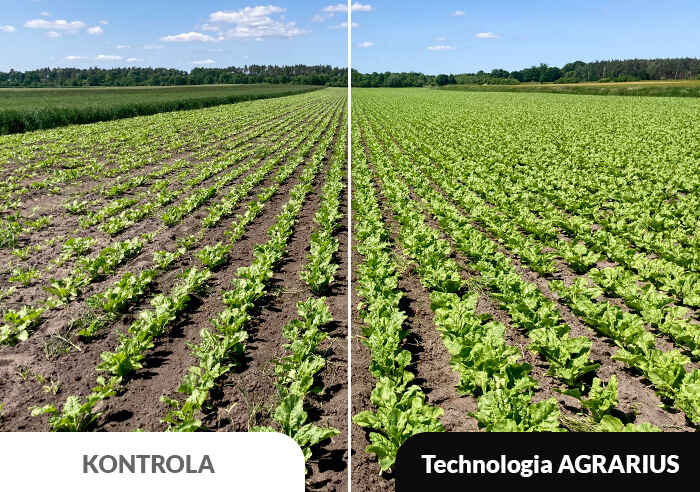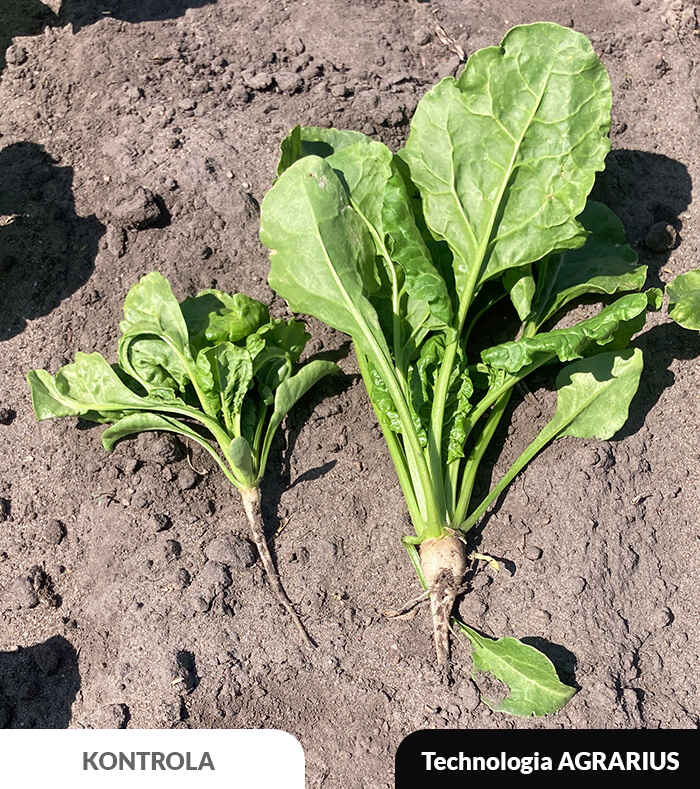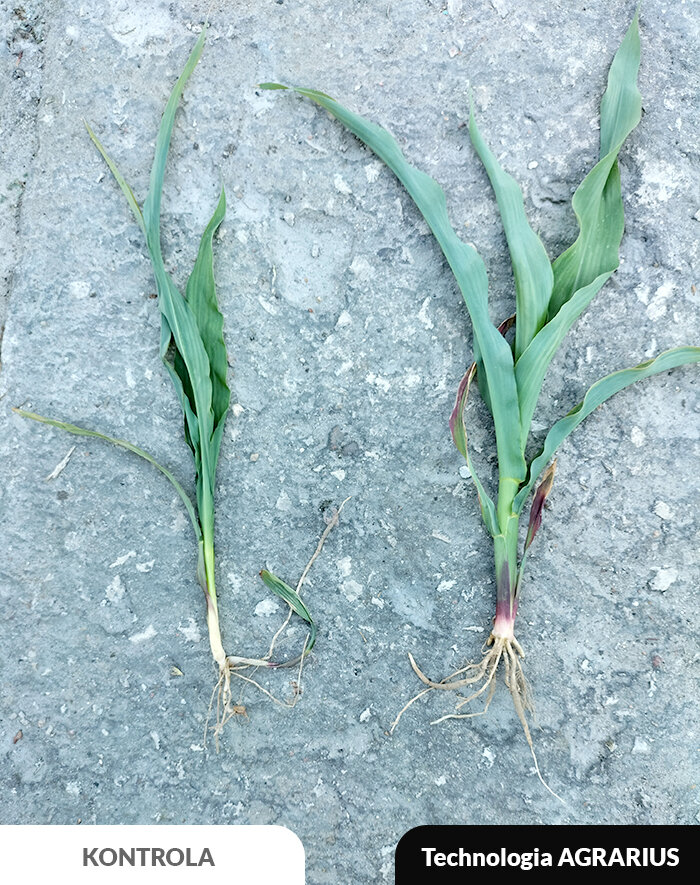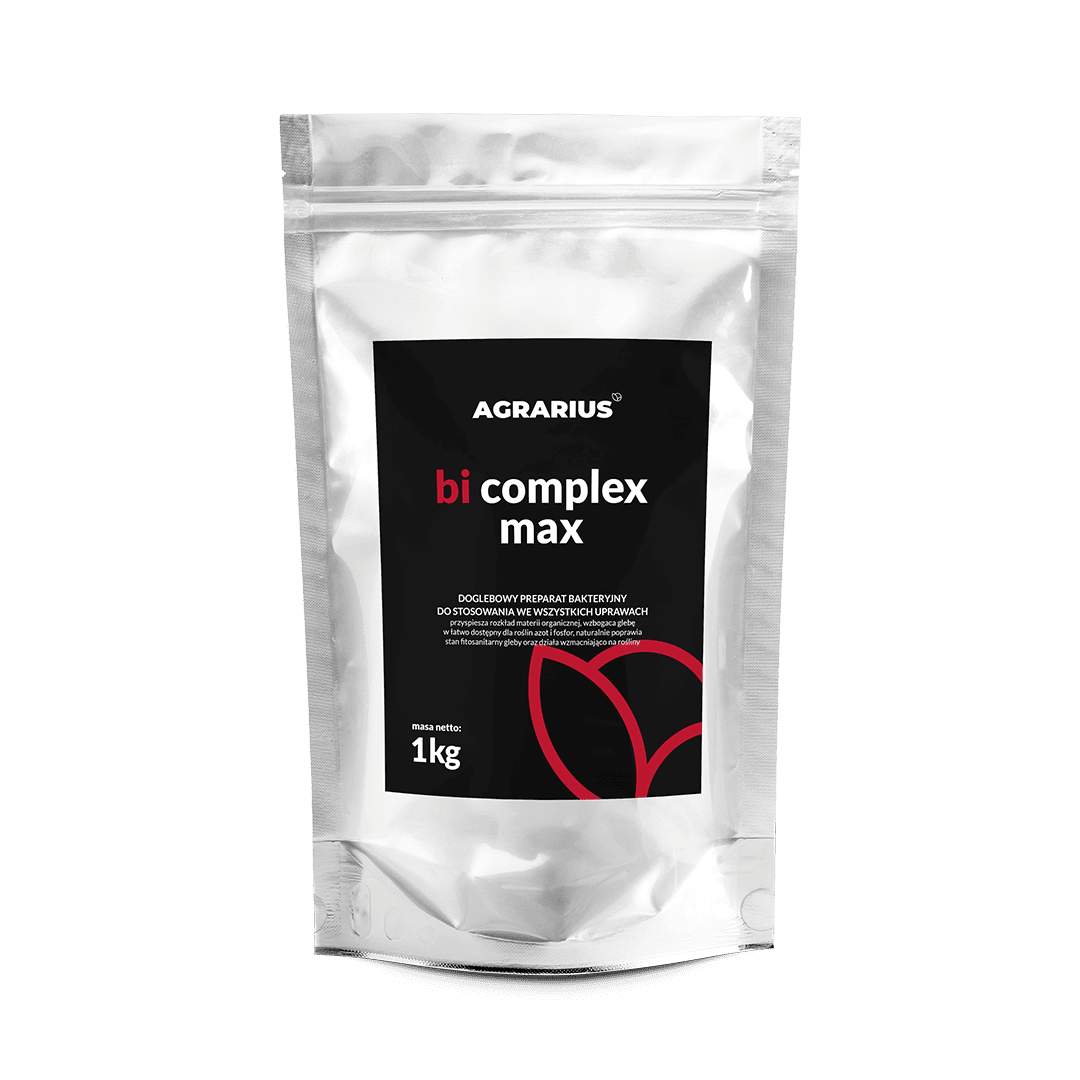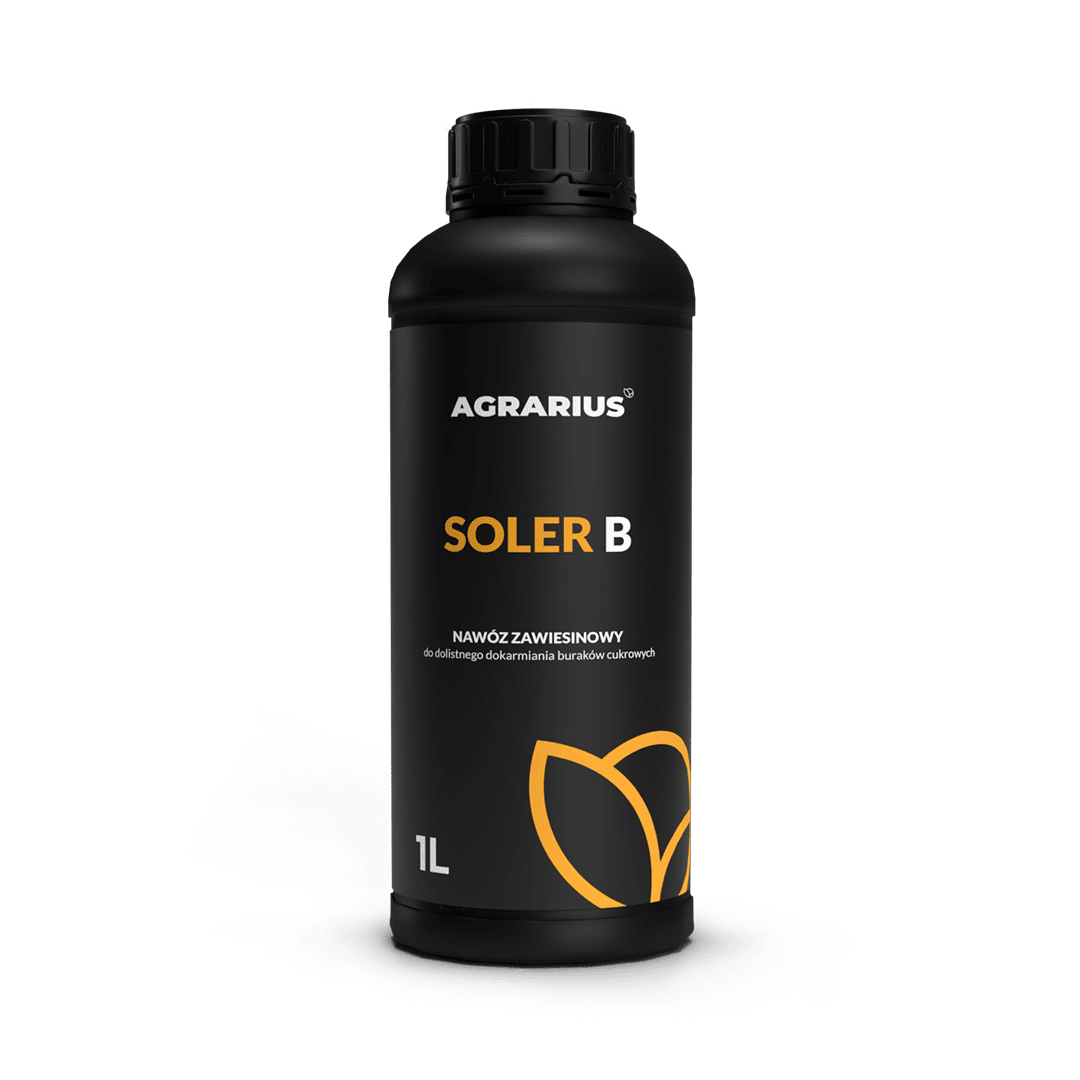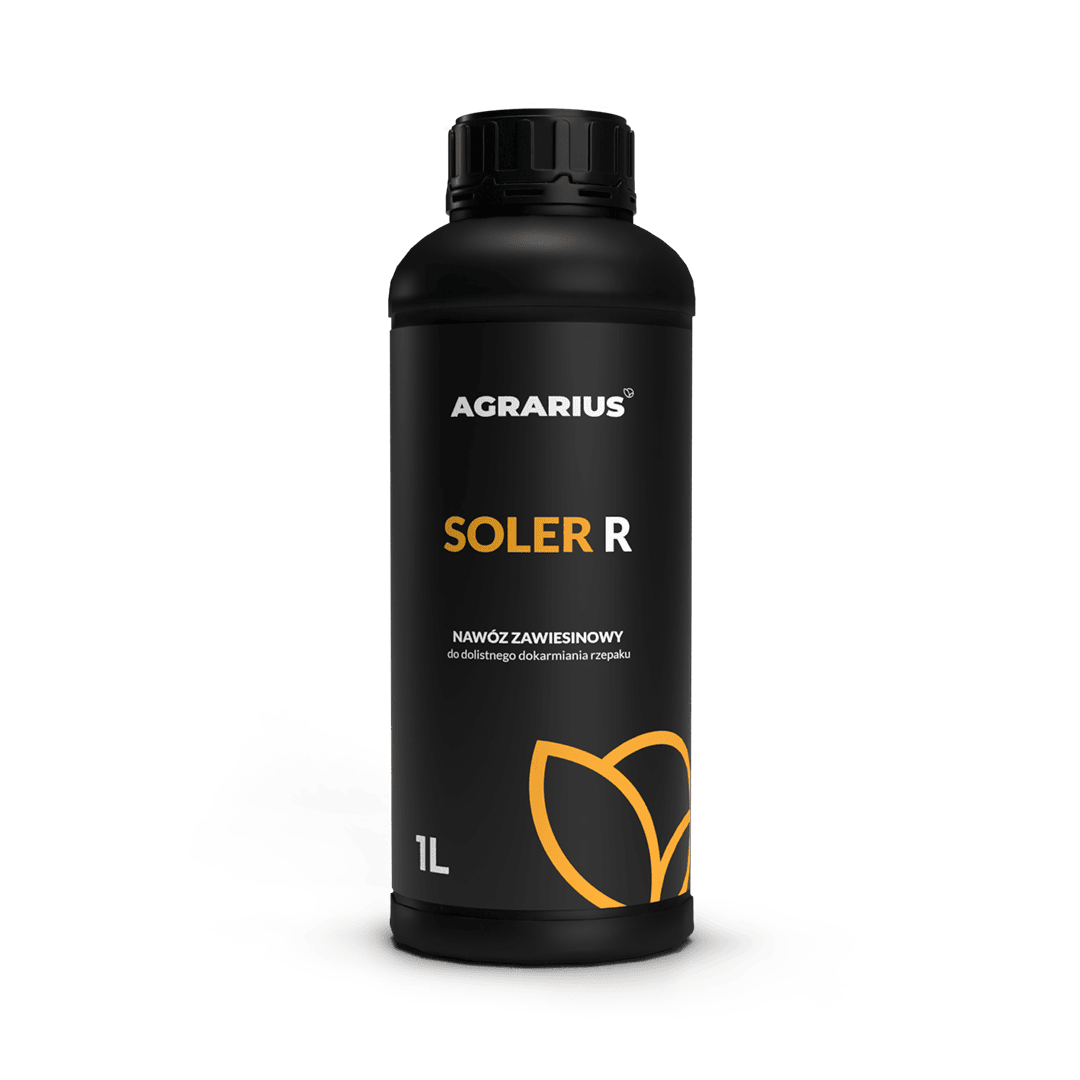bi fosfor
Bakterie fosforowe

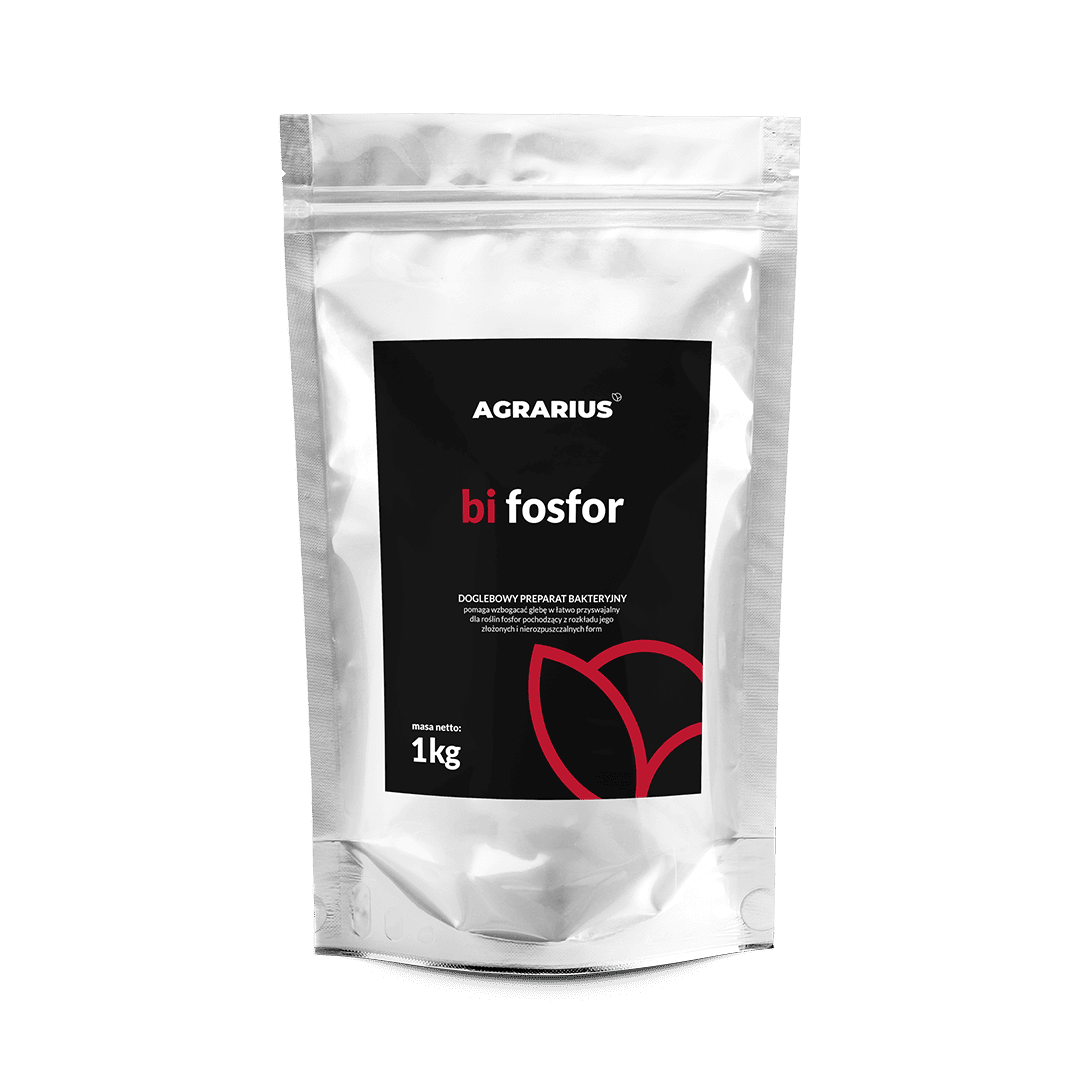
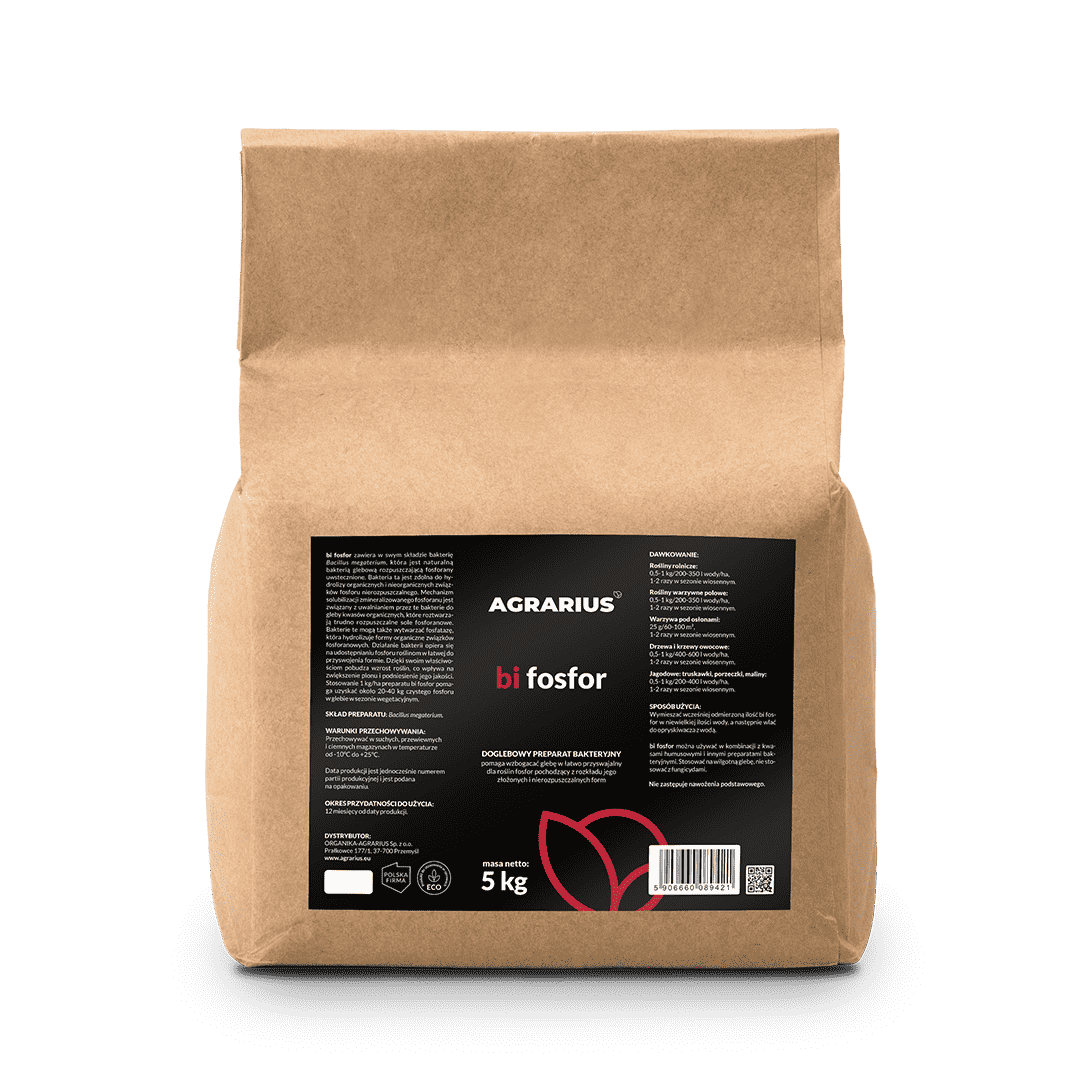
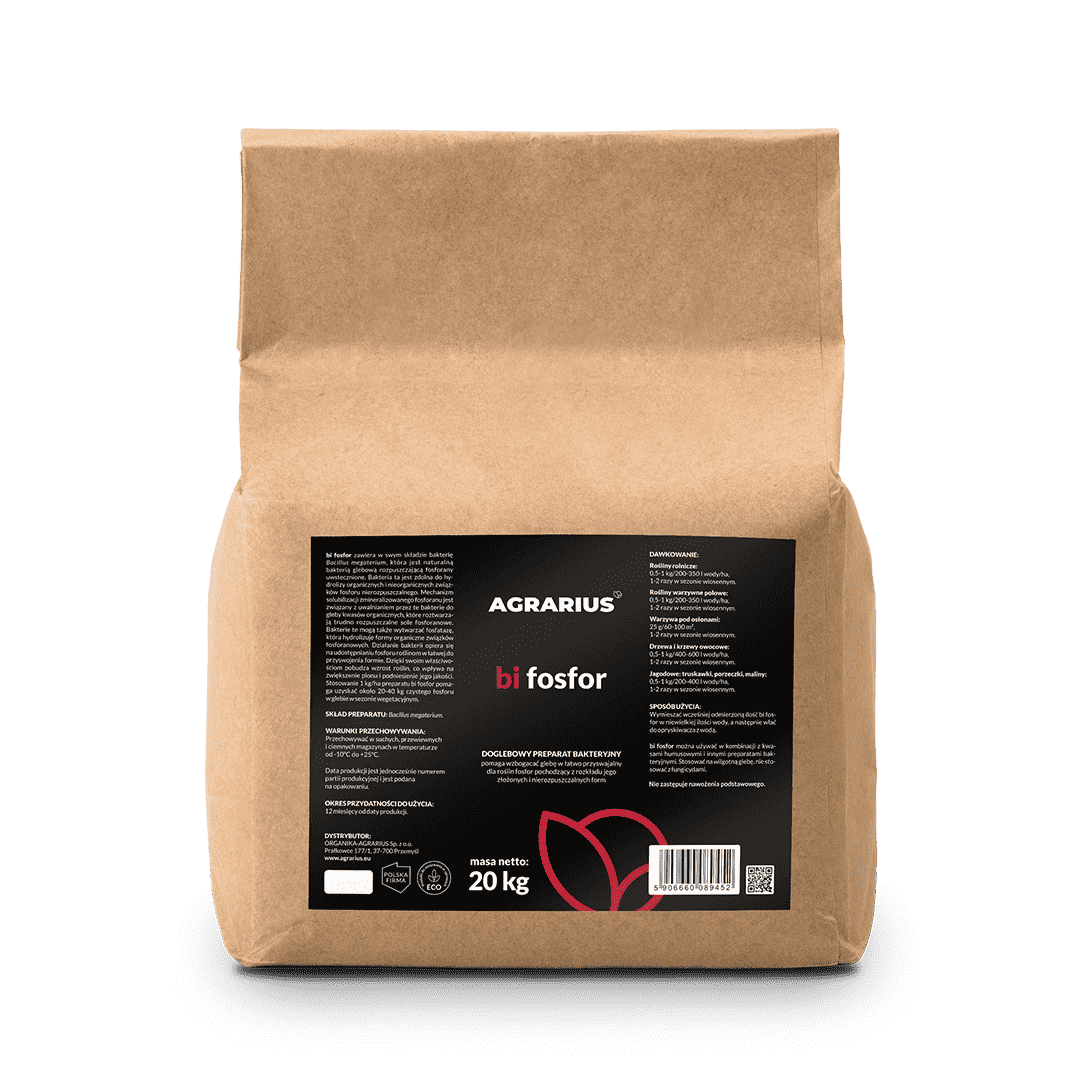
Zalety stosowania:
Opis produktu:
Specjalistyczny nawóz mikrobiologiczny bi fosfor zawiera starannie wyselekcjonowane bakterie fosforowe Bacillus megaterium, które przyczyniają się do poprawy jakości gleby. Bakterie megaterium są określane jako „superbakterie”, gdyż poprawiają zasobność gleby w dobrze przyswajalny dla roślin fosfor. Szczepy Bacillus megaterium rozkładają uwstecznione i związane formy fosforu (w tym fosforyny, fosfoniany) w fosfor o doskonałej dostępności.
W preparacie bi fosfor wykorzystano dużą ilość bakterii Bacillus megaterium, co pozwala uzyskać na jednym hektarze nawet do 20-40 kg dodatkowego fosforu. Ten składnik mineralny bierze udział we wszystkich życiowych procesach roślin. Fosfor jest niezbędny m.in. do fotosyntezy, przemiany materii i tworzenia białek oraz substancji zapasowych takich jak chityna czy tłuszcze. Mimo iż ten składnik wymywa się dość trudno, jednocześnie musi być dostępny na konkretnej głębokości profilu glebowego – dokładnie w ryzosferze, gdzie znajdują się systemy korzeniowe. Ważna jest świadomość, że rośliny pobierają fosfor z gleby wyłącznie w postaci jonów kwasu fosforowego (V), a odpowiednia podaż tego składnika stanowi niezbędny element udanej uprawy.
Niedobór fosforu zakłóca podstawowe funkcje życiowe roślin – osłabia ich wzrost i prowadzi do problemów w rozwoju systemu korzeniowego, a przez to skutkuje gorszym pobieraniem składników odżywczych zawartych w glebie. Niestety udział dobrze przyswajalnej formy fosforu jest na polskich glebach zbyt mały i zwykle trzeba go systematycznie dostarczać. Dzięki zastosowaniu bakterii fosforowych nazywanych też PSB możliwe jest rozpuszczanie fosforanów uwstecznionych i uzyskiwanie lepiej przyswajalnych form fosforu. PSB wprowadzają do gleby nie tylko fosfor, ale też takie związki jak auksyny, cytokininy, siderofory i witaminy. Zastosowanie bakterii fosforowych z preparatu bi fosfor pomaga w naturalny sposób optymalizować produkcję rolną.
Mikrobiologiczny nawóz bi fosfor to unikalny produkt wspierający ekologiczne rolnictwo. Preparat opracowany z zastosowaniem nowoczesnych technologii wpływa pozytywnie na jakość gleby poprzez stwarzanie roślinom optymalnych warunków do rozwoju, wzrostu i obfitego plonowania. Bakterie fosforowe zawarte w bi fosfor sprawdzają się doskonale w różnych typach upraw, zarówno na polu, jak i pod osłonami. Ten naturalny nawóz poprawia odporność roślin na stres, wspomaga rozwój bryły korzeniowej i przeciwdziała chorobotwórczym patogenom.
| UPRAWA | DAWKOWANIE | STOSOWANIE |
|---|---|---|
| Rośliny rolnicze | 0,5-1 kg/200-350 l wody/ha | 1-2 razy w sezonie wiosennym |
| Rośliny warzywne polowe | 0,5-1 kg/200-350 l wody/ha | 1-2 razy w sezonie wiosennym |
| Warzywa pod osłonami | 25 g/60-100 m2 | 1-2 razy w sezonie wiosennym |
| Drzewa i krzewy owocowe | 0,5-1 kg/400-600 l wody/ha | 1-2 razy w sezonie wiosennym |
| Truskawki, maliny | 0,5-1 kg/200-400 l wody/ha | 1-2 razy w sezonie wiosennym |
Dodatkowe informacje:
Preparat bi fosfor z bakteriami fosforowymi należy stosować zawsze na wilgotną glebę, najlepiej razem z kwasami humusowymi sprzyjającymi namnażaniu się bakterii. Nawozu nie należy używać podczas słonecznej pogody oraz w czasie suszy. Nie zaleca się też mieszania go z fungicydami.
bi fosfor został dopuszczony do stosowania w uprawach ekologicznych przez Instytut Uprawy Nawożenia i Gleboznawstwa, numer dopuszczenia: (SE/26/2020).
Napisz do nas i wyślij wyniki swoich doświadczeń.
